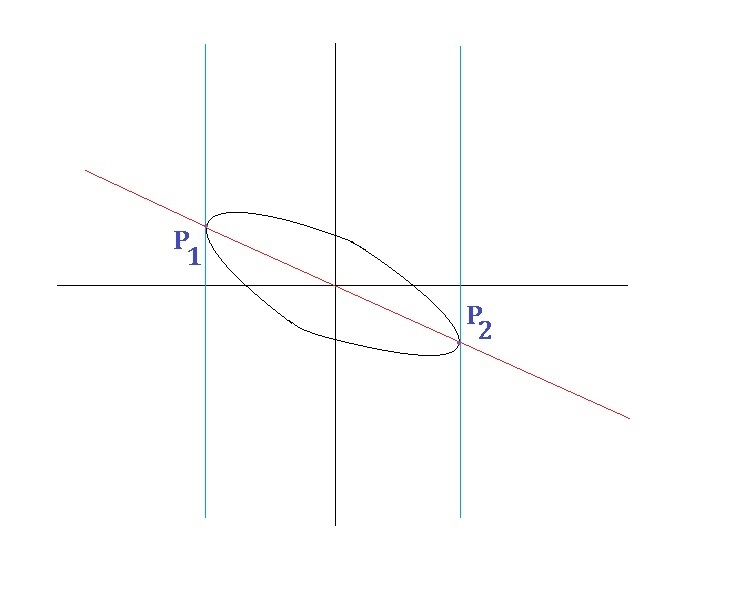Rolling Rugby

As shown above is the elliptical graph of , where and are the points on the graph with minimum and maximum coordinates respectively, and the red line is the linear graph passing through and .
If the tangent parallel to line touches the graph at a point for some real numbers , compute .
The answer is 7.
This section requires Javascript.
You are seeing this because something didn't load right. We suggest you, (a) try
refreshing the page, (b) enabling javascript if it is disabled on your browser and,
finally, (c)
loading the
non-javascript version of this page
. We're sorry about the hassle.
By using implicit differentiation, we can evaluate f'(x) as shown below:
x 2 + x y + y 2 = 7
d x d ( x 2 + x y + y 2 ) = 0
2 x + ( y + x f ′ ( x ) ) + 2 y ( f ′ ( x ) ) = 0
f ′ ( x ) ( x + 2 y ) = − ( 2 x + y )
f ′ ( x ) = x + 2 y − ( 2 x + y )
The slope of the blue lines touching P 1 & P 2 reaches infinity as in terms of f ′ ( x ) . This occurs when the denominator x + 2 y = 0 or y = 2 − x , which is the equation for the red line. In other words, the red line l has a slope of 2 − 1 .
Now for the tangent of slope 2 − 1 , we can plug in this value to f ′ ( x ) :
f ′ ( x ) = x + 2 y − ( 2 x + y ) = 2 − 1
x + 2 y = 4 x + 2 y
3 x = 0 ; x = 0
The tangent touches the graph when x = 0 , and we can calculate for y-value as y 2 = 7 .
As a result, a 2 + b 2 = 0 + 7 = 7 .